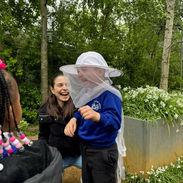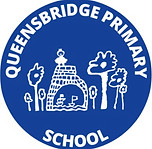
Science
We believe that science should ignite children's curiosity to find out about the world around them.'

The aim of science teaching at Queensbridge Primary School is to ignite children’s curiosity about natural phenomena and give children the necessary skills to explore the world around them.
Children will discover how useful science has been in the past at improving our society and about the increasing importance of science as we face global challenges, such as access to water and climate change. By celebrating a diverse range of scientists throughout their time at Queensbridge, we hope to raise children’s science capital and inspire children’s interest in a range of valuable careers related to STEM.
As a school community we are proud to have been awarded the Primary Science Quality Mark (Gilt standard) for science provision.
The science curriculum aims to ensure that all pupils:
-
Develop a curiosity of natural phenomena
-
Learn through engaging practical enquires
-
Develop their ability to work scientifically
-
Use a range of scientific equipment to collect data
-
Record, analyse and present data to help answer questions
In EYFS, children are taught about the natural world within the ‘understanding the world’ area of learning. Science is taught through adult led activities, however opportunities for exploring the world are found throughout the EYFS free flow provision both inside and outside.
In Key Stage One and Two, science lessons are centered on key enquiry questions, allowing children to learn scientific knowledge through ‘hands-on’ practical science. Children will gain experience of a variety of enquiry types including: pattern seeking, identifying and classifying, comparative and fair testing, observing over time and researching using secondary sources.
We have worked hard at Queensbridge to develop outdoor areas that support science learning, including a nature area, pond, insect hotels and a wormery. Throughout their time at Queensbridge, children will gain experience of planting, mini beast hunting, bird watching and pond dipping.
Each year we celebrate science and related subjects through STEAM Week where children are asked to focus on a real life problem that scientists are working on today.
What have we been up to this year?
Thanks to UBS generous sponsorship we are able to regularly visit The Garden Classroom.
So far, the Garden Classroom has provided all of our Year Groups with a foundational knowledge of sustainability. The sessions are well planned to align with our science and sustainability curriculum objectives in Years 1 to 6 and understanding the world in EYFS. The practical hands-on knowledge has made the learning fun and an enjoyable experience. Year 5 children spoke confidently about photosynthesis following their session and have expressed being very interested in their next session Pollinator Power. Being able to attend the sessions in the Garden Classroom environment helps to build the cultural capital for our children as many in the cohort may not have access to these types of natural spaces at home. Teachers have reported children building their confidence in ‘risky skills’ such as using a knife safely to chop vegetables and for new experiences such as trying different tastes/ textures when picking from the herbs. The children have also gained a greater awareness for nature and the environment and have demonstrated this by relaying ‘no pick, no lick and mind that stick’ since being back at school. Some children who were previously scared of bees, shared that they learnt if you stand still and make a cross with your arms then the bees will leave you alone. We are very much looking forward to the next sequence of sessions and building upon the skills learnt in the first.
take a peek....


































